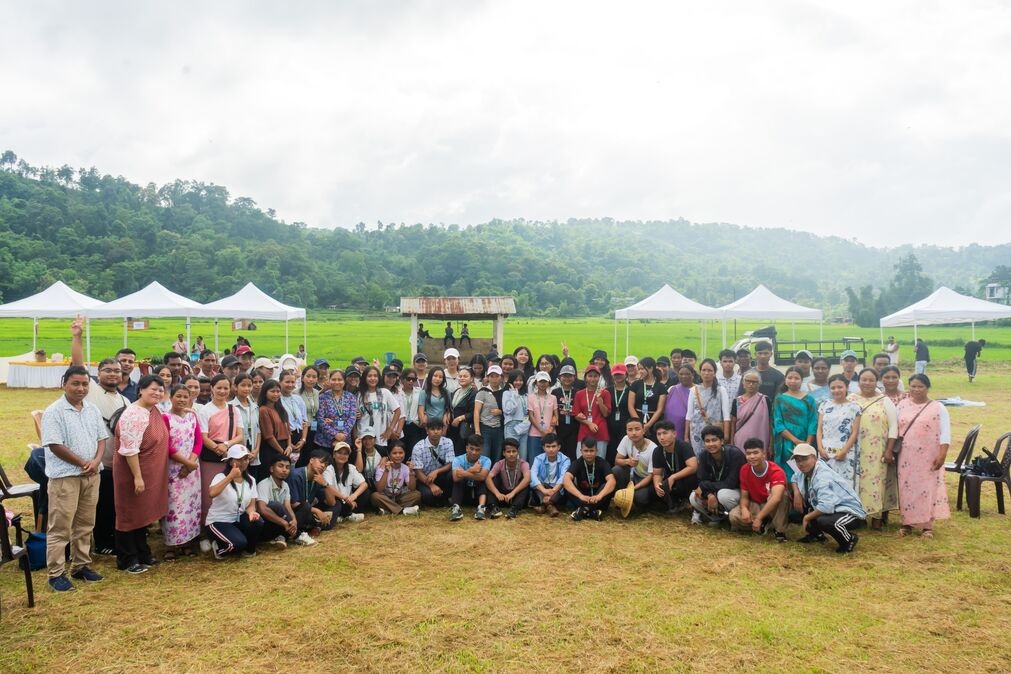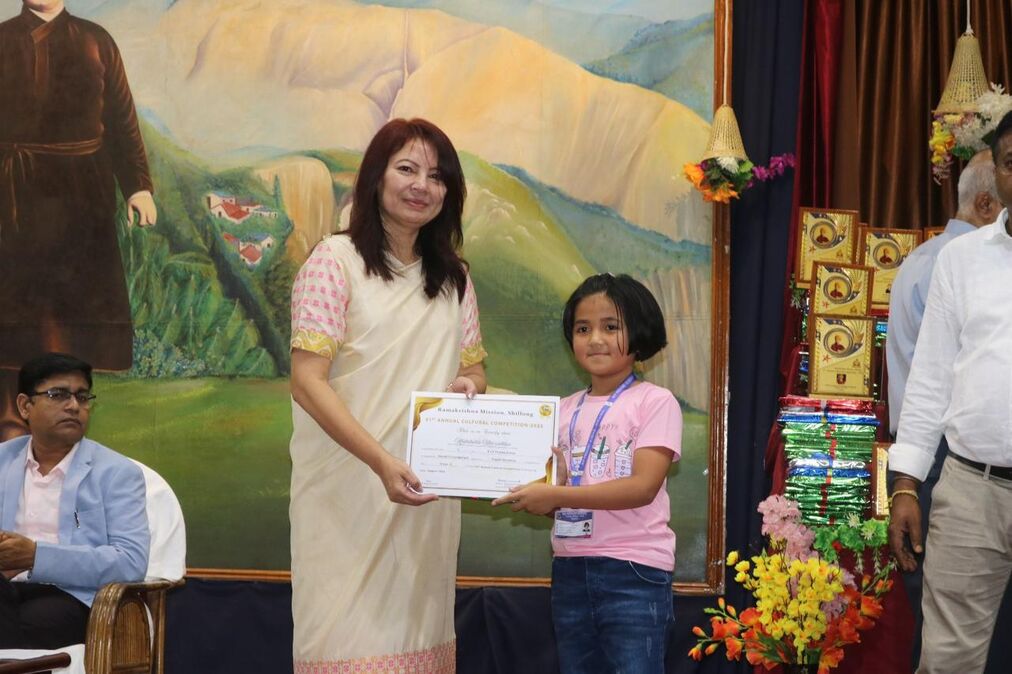Shillong, Aug 9: The need for the younger generation of indigenous communities to reconnect with their roots was highlighted during the International Day for the World’s Indigenous Peoples held at Liarsluid in Ri Bhoi on Saturday.
Organised by NESFAS with this year’s global theme, “Indigenous Peoples and AI: Defending Rights, Shaping Futures”, the event was attended by various Indigenous communities from Ri Bhoi and East Khasi Hills along with BSW students from St. Edmund’s College.
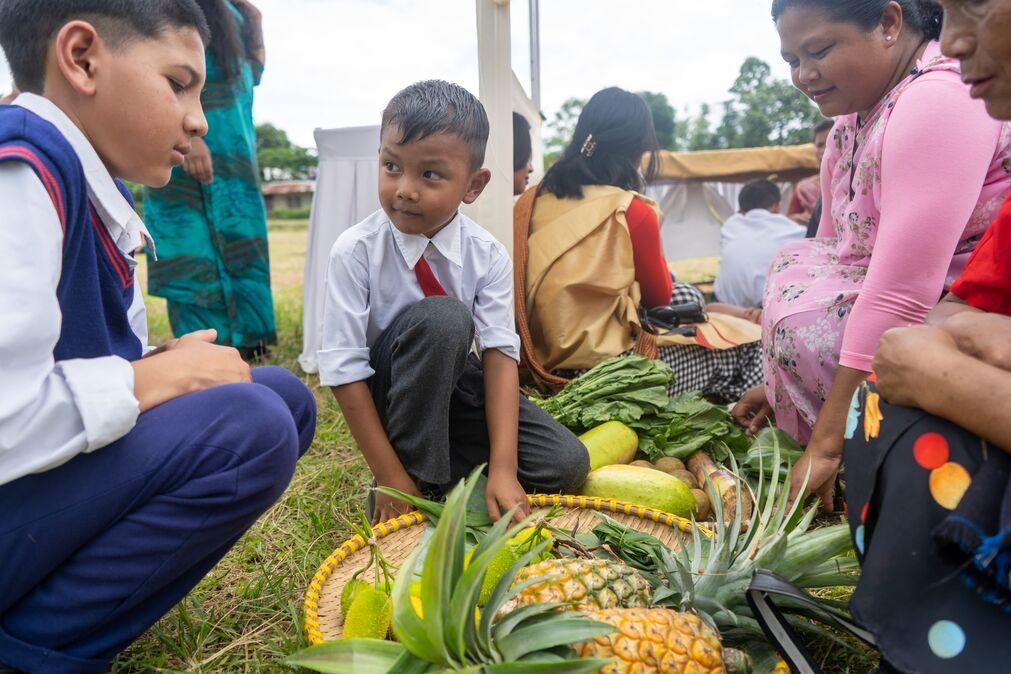
Rikynti Syiem, NESFAS vice-chairperson, emphasised on the need of the younger generation of indigenous communities to turn back to their roots and the need of these communities to work towards conserving the rich biodiversity which they are custodians of.
“We must raise awareness and renew our efforts to protect and care for the environment. I encourage the youth to understand the importance of conservation so that they can preserve it for the future.” said Rikynti.
Rimiki Syiem, headman, Liarsluid, in his welcome address, expressed his gratitude to NESFAS for initiating the event at the village and for their continued support towards the community in promoting sustainable food and preserving traditional food systems.

Dr. Bhogtoram Mawroh, Research Consultant, NESFAS, talked about the rights of Indigenous Peoples in his keynote address and shared a brief introduction on who indigenous peoples are and how they are recognised in India. He also highlighted the many persecutions faced by Indigenous communities worldwide and how their movements have come to define the rights of Indigenous communities today.
Gilbert Khongsit, farmer and Community facilitator, Mawbri, who spoke on behalf of the communities shared a compelling argument on how traditional methods of farming are far more beneficial for maintaining good health and well-being when compared to modern methods of farming that are heavily reliant on the use of chemicals. He stated that the detrimental effect of modern farming doesn’t only affect the human body but also the health of the soil as well as water reservoirs and groundwater, thus, polluting and adversely affecting the environment and ecosystem in general.
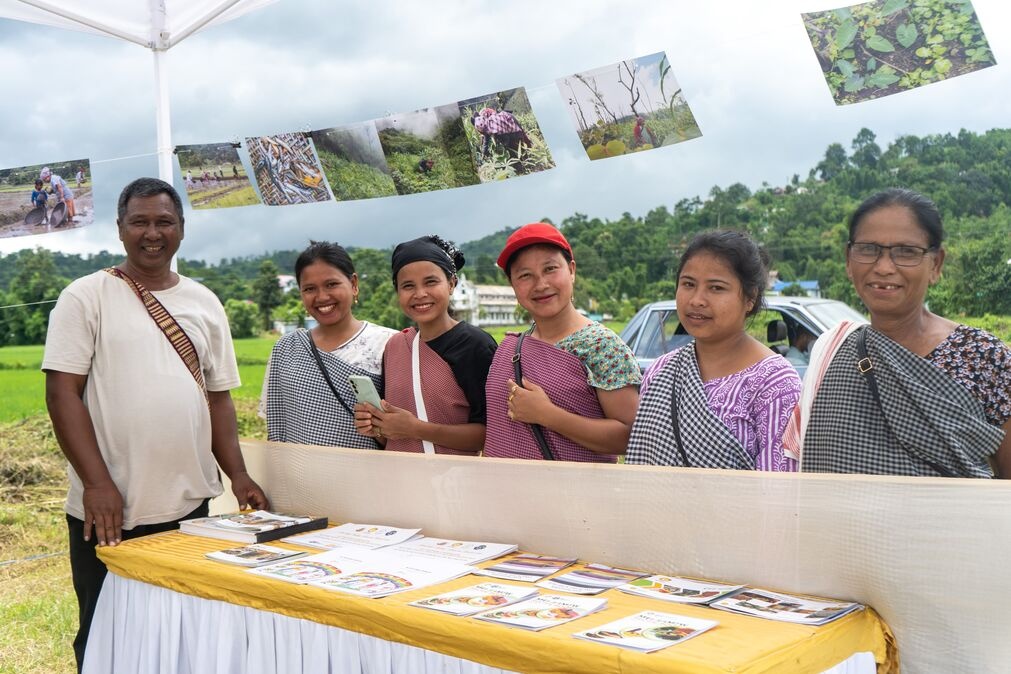
“It’s time for us to come together to raise awareness and educate fellow farmers on the importance of strengthening traditional, pesticide-free farming. By doing so, we can ensure access to safe, healthy food and protect both our environment and the fertility of our soil.” He said, while adding that the indigenous farmers retain their confidence in the leadership of NESFAS to bring about this change.
“Achieving this vision will require the collaboration of all stakeholders, including the government, the Ministry of Agriculture, the Ministry of Health, and other NGOs.” Gilbert concluded.
Patricia Mukhim, Editor of the Shillong Times and chief guest at the event, expressed her heartfelt gratitude to the Liarsluid community and to NESFAS for their role in safeguarding the biodiversity of indigenous communities. She reminded the audience on the importance of protecting the environment as the destruction of the same would mean jeopardising the very survival of humanity. She also highlighted the importance of preserving knowledge of herbal medicines and spoke about the links between education, poverty, and nutrition, noting with concern that “many children still suffer from undernourishment despite the availability of healthy foods.”
She also touched briefly on the theme for this year’s Indigenous Day celebration and addressed the growing threat posed by artificial intelligence, particularly to indigenous communities.
The programme continued with a Phawar (traditional couplet) performance by Shaiphar Dohling and the NESFAS team. The event concluded with a vote of thanks from Ailis Kshiar, a community member from Itsohpair.
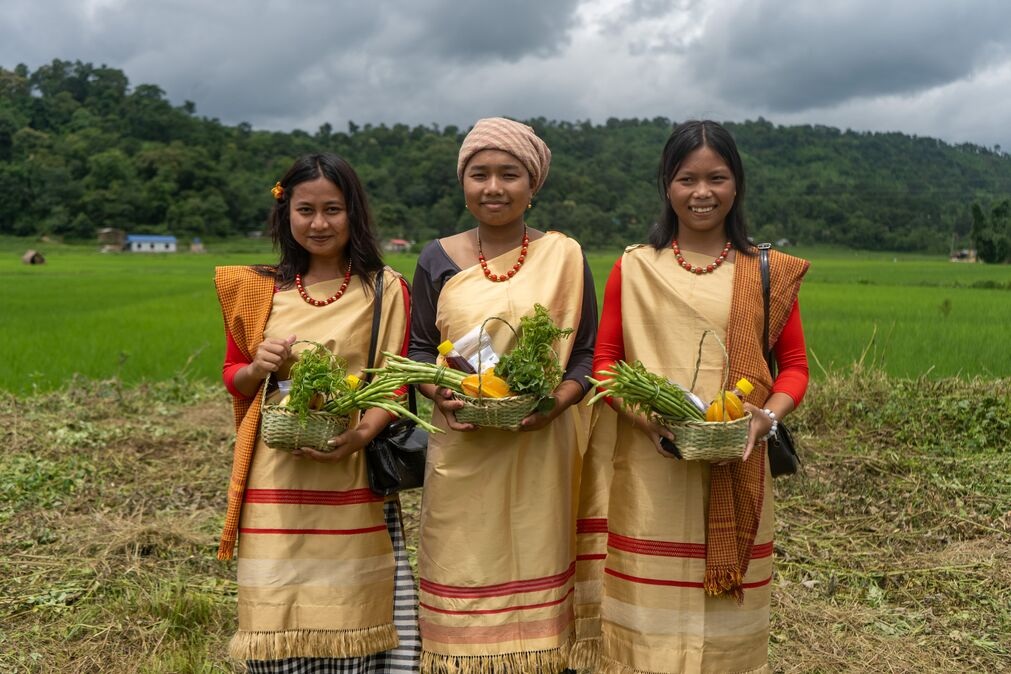
The formal event was followed by the farmers market where community members from Plasha, Umwang Nongbah, and Liarsluid of Ri Bhoi District and Mawstep, Mawbri, and Laitlyndop of East Khasi Hills brought and sold their produce to the participants.
There was also a vegetable exchange program where students from Plasha Govt. LP UP School, St. Anthony’s RCLP School, Mawbri, Mawstep Govt LP School, Laitlyndop Govt. SSA L.P U.P School, Liarsluid L.P School and Madanjyrlud Presbyterian LP School Itsohpair shared the many vegetables from their school gardens among themselves.
Participants also browsed through the numerous stalls and a special Photo Exhibition that had been put up as part of the event where NESFAS showcased photos from their archive.
The event ended in much fanfare as the talented local band ‘Na Rympei Bathiang’ of the Meghalaya Grassroot Music Project – roused the participants with their musical performance, while the communities and the students of St. Edmund’s College participated in exciting indigenous games led by Bhogtoram Mawroh.

